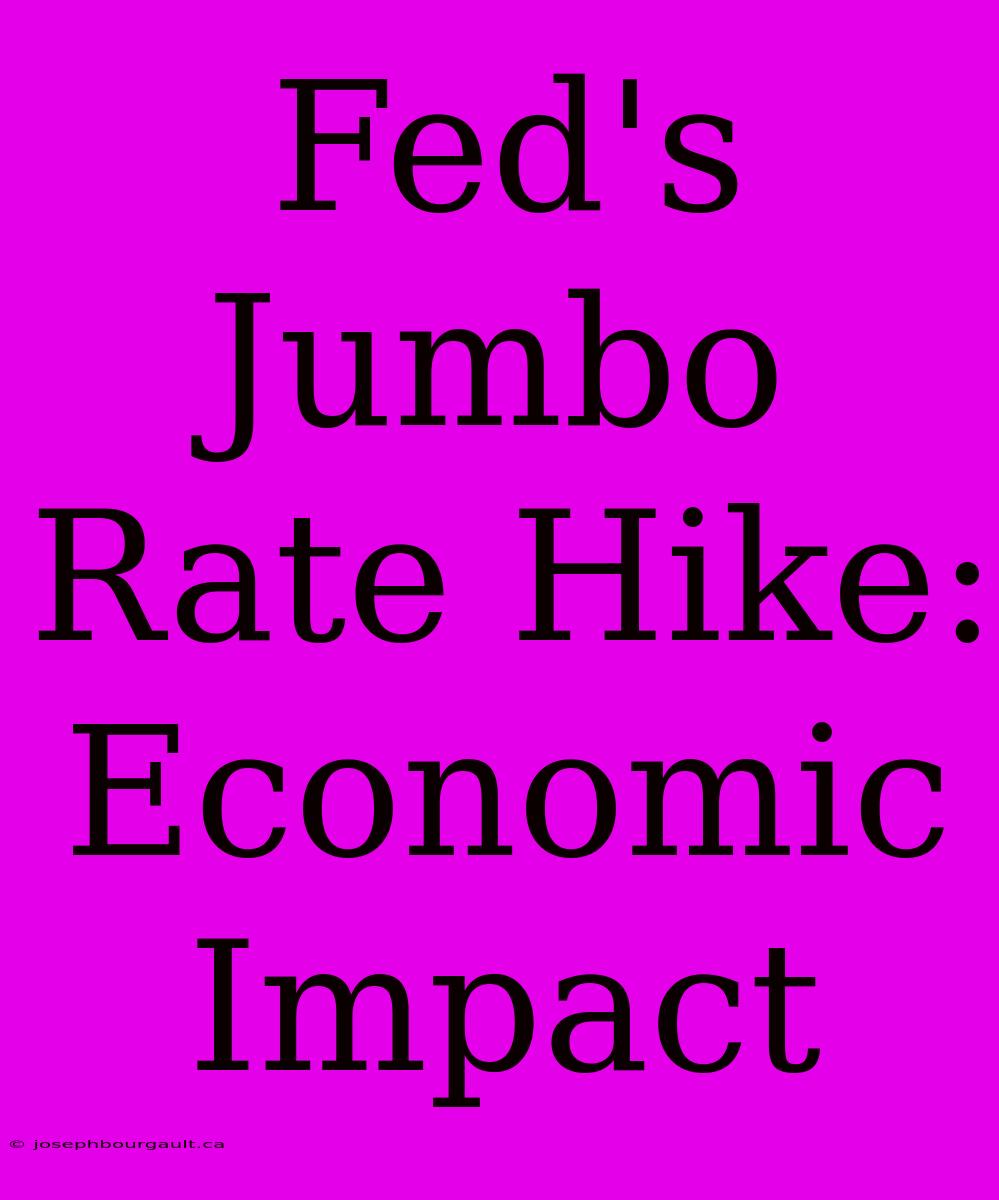Fed's Jumbo Rate Hike: Economic Impact
The Federal Reserve's recent jumbo rate hike, the most aggressive since 1994, sent shockwaves through the global economy. While aimed at taming soaring inflation, the move has sparked concerns about a potential recession. This article delves into the potential economic impacts of the Fed's decision, examining the pros and cons, and exploring the implications for businesses and consumers.
Pros: Combatting Inflation
The primary goal of the Fed's rate hike is to curb inflation, which has reached its highest levels in decades. By increasing borrowing costs, the Fed hopes to reduce consumer spending and cool demand, ultimately easing inflationary pressures.
Here's how the rate hike could help combat inflation:
- Reduced Consumer Spending: Higher interest rates make it more expensive for individuals to borrow money, leading to a decrease in discretionary spending. This reduced demand could help cool inflation.
- Slower Economic Growth: By making borrowing more costly, the Fed aims to slow down economic growth, which can contribute to lower inflation.
Cons: Economic Slowdown and Recessionary Fears
While the Fed aims to bring inflation under control, the aggressive rate hike carries significant risks. The primary concern is that it could trigger a recession, leading to job losses and economic hardship.
Here's why the rate hike could lead to an economic slowdown:
- Increased Borrowing Costs for Businesses: Businesses rely on loans for investments and expansion. Higher interest rates make borrowing more expensive, potentially leading to reduced investment and job creation.
- Reduced Housing Market Activity: The real estate market is highly sensitive to interest rates. Higher rates can make mortgages more expensive, leading to a decline in home sales and construction activity.
- Potential for a Recession: The combination of higher borrowing costs, reduced consumer spending, and slower economic growth could tip the economy into a recession.
Implications for Businesses and Consumers
The Fed's decision has far-reaching implications for businesses and consumers alike:
For Businesses:
- Higher Interest Rates: Businesses will face higher borrowing costs, making investments and expansions more expensive.
- Potential for Reduced Demand: If consumer spending decreases due to higher interest rates, businesses could experience a decline in demand for their products and services.
For Consumers:
- Higher Borrowing Costs: Consumers will face higher interest rates on loans, credit cards, and mortgages, making it more expensive to finance purchases.
- Reduced Spending Power: As the cost of borrowing increases, consumers may have less disposable income, leading to reduced spending.
- Potential for Job Losses: If the rate hike triggers a recession, job losses could increase, leading to economic hardship.
Conclusion
The Fed's jumbo rate hike is a bold move aimed at combatting inflation. While it could be effective in cooling inflation, it carries risks of triggering a recession. The economic impact will depend on the Fed's future actions and the overall response of businesses and consumers. It remains to be seen whether the Fed's strategy will be successful in taming inflation without causing significant economic pain.

